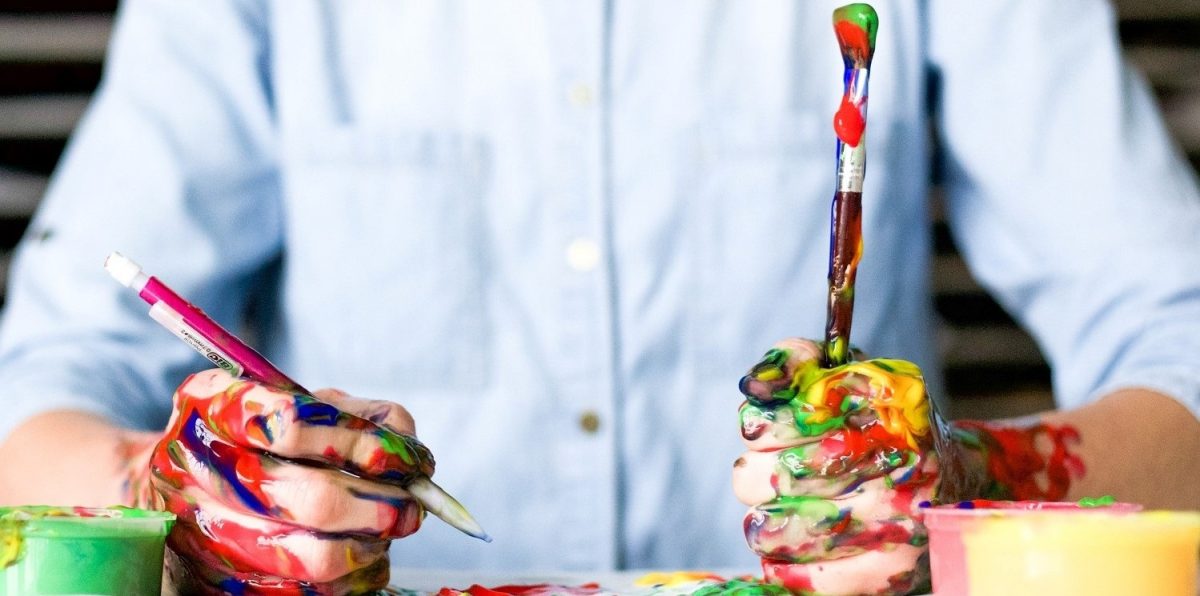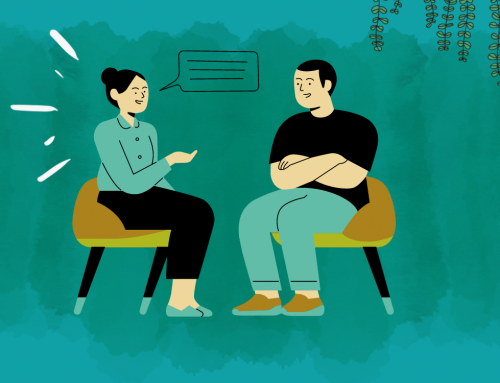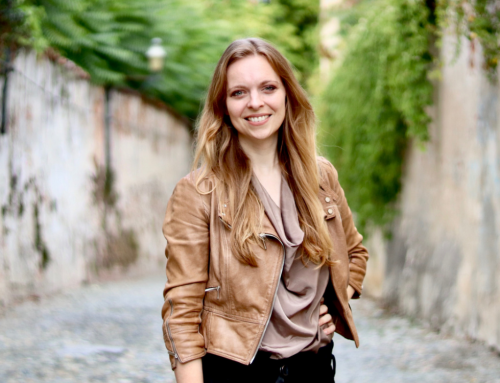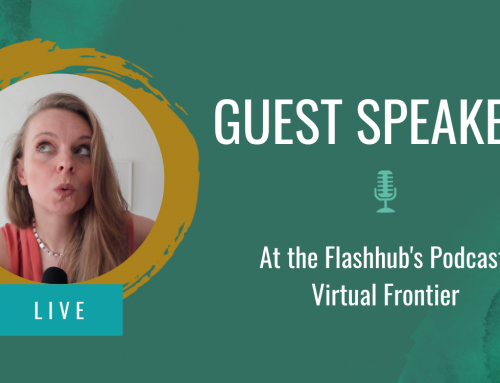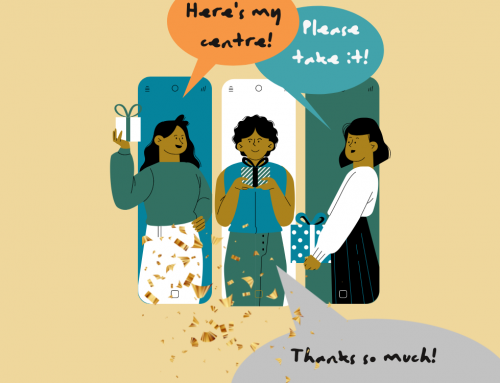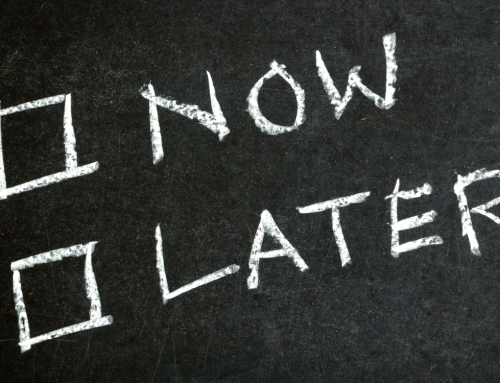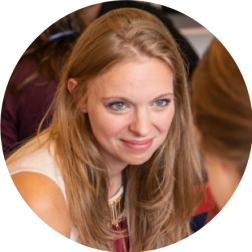“Everybody is a genius. But if you judge a fish by its ability to climb a tree, it will live its whole life believing that it is stupid” – Albert Einstein
Now change genius with creative.
“Everybody is creative. But if you judge a fish by its ability to climb a tree, it will live its whole life believing that he/she is stupid” – WRITTEN BY IRINA BURUIANA AND HOSTED BY KATHRIN RENNER.
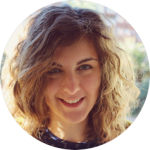 Creativity is considered as something that you either have or you don’t – or, creative is something that you either are, or you aren’t. As our society moves and changes faster and faster, creativity has become something very sexy to have: We need it to adapt, to find solutions, to be one step ahead, to think out of the box. At the same time, it appears to be very difficult to obtain. It seems like either your are born with it, or you aren’t: If you don’t know how to paint, act, dance, and sculpt, the right hemisphere of your brain isn’t developed.
Creativity is considered as something that you either have or you don’t – or, creative is something that you either are, or you aren’t. As our society moves and changes faster and faster, creativity has become something very sexy to have: We need it to adapt, to find solutions, to be one step ahead, to think out of the box. At the same time, it appears to be very difficult to obtain. It seems like either your are born with it, or you aren’t: If you don’t know how to paint, act, dance, and sculpt, the right hemisphere of your brain isn’t developed.
Let me tell you the truth: This is rubbish (just to use a respectful term). Science proves the idea that some people are creative and some aren’t wrong:
Creativity is multisensorial and involves multiple connections across our brain. This means that creative people don’t use only the imaginative and abstract functions of their brains, but also the analytical and structured ones. Our entire brain is needed in this process.
Creativity manifests in different ways
Think about a mathematician faced with a problem to be solved: First he/she thinks about all the possibilities that will generate a solution, taking every piece of information and understanding it. This is the divergent process of creativity. Then, in order to generate a result, he /she needs to break it down, narrow down the possibilities and apply them to the specificity of the problem. This is the convergent process of creativity.
So we see that creativity is not a state or a talent, but a process. This means that it is not something inherent or inherited or static, but that it is something that can be grown, developed and nurtured all your life. It is a process that includes generating and selecting ideas and elements. Everyone that has intellect, curiosity, ambition and persistence is able to engage in this a process.
Looking at creativity from this angle, it opens up a new perspective: We generate solutions and draw conclusions in every aspect of our life: career, relationships, environment etc. From morning until we go to sleep, and sometimes even in our dreams. Therefore, creativity naturally forms part of our life.
We are in a constant flow of decision and ideas, of possible scenarios and outcomes. That is why sometimes it is so difficult to go in one direction: We feel that our head is full of thoughts and always working. However, neurologically speaking, our brain is not able to think more than one thought at the same time. The feeling that our head is constantly full stems from the fact that our speed of thought is still difficult to imagine. But with all this, we are constantly thinking and deciding.
Boosting your creativity
While everyone is creative, different people manifest creativity in different ways. If you still have doubts about how to answer the question whether you are creative, Scott Kaufman, psychologist, co-founder of Imagination Institute, part of the Positive Psychology Center at the University of Pennsylvania in Philadelphia, established a set of 4 questions that will help uncover in what way you already apply and how you can train you creativity.
- Are you divergent?
You have both sides in you, generating and summarising. Maybe you are more inclined to one side of the process. Which one are you? The one that generates a lot of ideas when faced with a problem or a confusion or the one that gathers the ideas and finds the solution? Do you like searching for options to a certain process or finding the solution that matches the expected result? Are you a dreamer or a doer?
- Are you open?
Experiences create memories and learning points. When faced with a decision we rely on past similar experiences and patterns to simplify the situation. Opening ourselves to the world brightens up the possibilities and brings other perspectives to the table and in turn, allows us to come up with new ideas, scenarios and solutions. So ask yourself: When was the last time you did something different? Or met different people? Are you searching for opportunities to put yourself out there?
- Are you motivated?
Creative achievement requires executive functions like attention, focus, and planning. We consider Dali, Picasso or Einstein creative people due to their inventions, amazing paintings and sculptures. They had interesting perspectives upon reality and abstract thinking (especially if we think about Dali), but at the same time they had determination and focus to extract their ideas and put them in on a piece of paper or a canvas. So are you a dreamer or are you a doer? Or a combination of both?
- Are you collaborative?
Creativity engages all parts of the brain. At the same time, we can’t have it all. Some people are more structured in their thinking process while others are more abstract and intuitive (going with their “gut feeling”). The beauty of this is that we complete each other in a group. So what are your strengths? How can you support others in a creative process? Are you a lone wolf or you like the group energy?
Look inside you and you might just find that spark called creativity. Maybe sometimes you don’t know exactly what that is, and in this case some guidance can do the trick. If you already have an idea of where to find that spark, follow it and let the flow catch you. Sometimes letting yourself go is the best decision.
General inspiration for this article: Click here.

